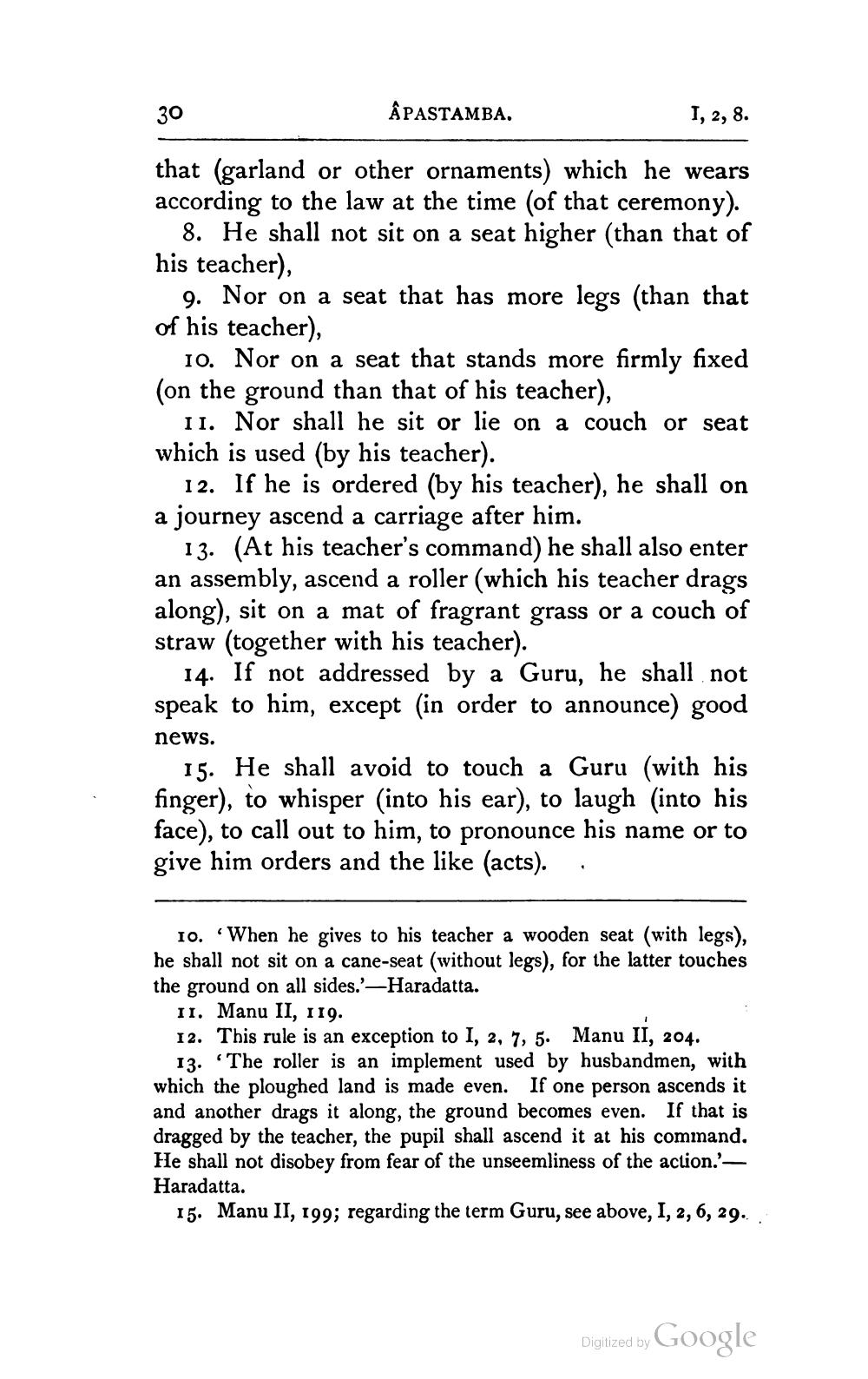________________
30
ÁPASTAMBA.
1, 2, 8.
that (garland or other ornaments) which he wears according to the law at the time (of that ceremony).
8. He shall not sit on a seat higher (than that of his teacher),
9. Nor on a seat that has more legs (than that of his teacher),
10. Nor on a seat that stands more firmly fixed (on the ground than that of his teacher),
11. Nor shall he sit or lie on a couch or seat which is used (by his teacher).
12. If he is ordered (by his teacher), he shall on a journey ascend a carriage after him.
13. (At his teacher's command) he shall also enter an assembly, ascend a roller (which his teacher drags along), sit on a mat of fragrant grass or a couch of straw (together with his teacher).
14. If not addressed by a Guru, he shall not speak to him, except in order to announce) good news.
15. He shall avoid to touch a Guru (with his finger), to whisper into his ear), to laugh (into his face), to call out to him, to pronounce his name or to give him orders and the like (acts)..
10. When he gives to his teacher a wooden seat (with legs), he shall not sit on a cane-seat (without legs), for the latter touches the ground on all sides.'-Haradatta.
II. Manu II, 119. 12. This rule is an exception to 1, 2, 7, 5. Manu II, 204.
13. The roller is an implement used by husbandmen, with which the ploughed land is made even. If one person ascends it and another drags it along, the ground becomes even. If that is dragged by the teacher, the pupil shall ascend it at his command. He shall not disobey from fear of the unseemliness of the action. Haradatta.
15. Manu II, 199; regarding the term Guru, see above, I, 2, 6, 29..
Digjized by Google




